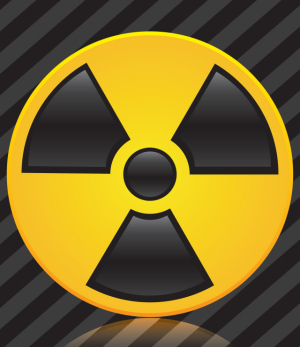¿Por qué es usted tan Radiosensitive?
por
Brendon Nafziger, DOTmed News Associate Editor | September 28, 2009

Sensitivity to radiation
varies from patient
to patient
Research that identifies which patients are highly sensitive to radiation could allow doctors to use safer and more effective cancer treatments.
"Radiation is quite simple," Dirk De Ruysscher, MD, PhD, a radiation oncologist and professor at Maastricht University Medical Center, in the Netherlands, tells DOTmed News. "The higher the dose, the higher the probability you have that the patient will be cured or you'll have local tumor control."
But dose delivery is constrained by fear of causing side effects in the small but significant minority of patients who experience adverse reactions to even controlled amounts of radiation. Dr. De Ruysscher hopes his work will allow doctors to better predict who will have a bad reaction, so higher, more cancer-destructive doses, could be used on everyone else.
Dr. De Ruysscher and his team shared the preliminary results of their study yesterday in a paper presented at ECCO, the European CanCer Organiztion's annual conference.
The study looked at over 7,500 patients who had undergone radiation therapy for cancer.
The patients' records were gathered from the Europe-wide GENEPI database, one of the world's largest storehouses of radiation cancer treatment data. Each record contains exhaustively comprehensive information on the patient, from DNA samples to extensive clinical reports -- such as age, gender and the history of treatment and its follow up.
The results of patients with normal reactions to radiation were compared with those who had clinical reports of being highly susceptible to it.
Of the 33 patients in the study thought to be radiosensitive, Dr. De Ruysscher discovered that only 11 truly qualified: They received for the most part low levels of radiation exposure, but had disproportionately severe reactions.
While acute side effects among these sensitive patients tend to be painful but minor, such as burns or the forming of tough tissue on the skin, known as fibrosis, delayed reactions -- sometimes appearing several years later -- can be quite dangerous. One radiosensitive woman in the study developed such severe tightening of her esophagus years after her treatment she had to have a stent implanted in her throat to keep her breathing passage open.
Genetic Basis?
Dr. De Ruysscher hopes the genetic data collected from these patients will shed light on the cause of radiosensitivity, thought to be brought about by a defect in the genes involved in DNA repair.
"When there's damage to cells [from radiation], perhaps the [DNA] repair [mechanisms] will not be sufficient or fast enough" in these populations, Dr. De Ruysscher says.
Dr. De Ruysscher also suspects these DNA-repair defects could be localized to certain areas. "They may be tissue specific," he says. "Someone might be quite susceptible to developing skin reactions, but not lung reactions, and vice versa."
Answers to this and other questions might start to come next year, when Dr. De Ruysscher hopes to have 12,000 patients covered by the study. It might end up being "one of the largest, maybe the largest study, for radiation treatment effects in the world," he says.
